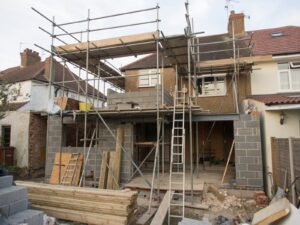 A backbench Conservative MP has denounced the ‘mutant algorithm’ at the heart of the government’s planning reforms, which he says was ‘cooked up in the wet market of Whitehall’.
A backbench Conservative MP has denounced the ‘mutant algorithm’ at the heart of the government’s planning reforms, which he says was ‘cooked up in the wet market of Whitehall’.
Speaking in Westminster earlier this week, Arundel and South Downs MP Andrew Griffith said there were ‘fundamental flaws’ in its methodology, including that it appears to be ‘entirely blind to geography’.
‘I would argue that, perhaps not for the first time this summer, well-meaning ministerial intent has been sabotaged by a “mutant algorithm” cooked up in the wet market of Whitehall,’ Mr Griffith told MPs.
Last month, Horsham District Council, which includes part of the Arundel and South Downs constituency, said it was taking legal advice on government plans to almost double the number of new homes built locally over the next decade.
The local authority said plans to reform the national planning system would oblige Horsham District Council to almost double the number of homes from the current minimum target of 920 homes to 1,715 homes a year.
‘If, as in West Sussex, much land is physically incapable of being developed or is protected in law, the algorithm appears to completely ignore this,’ said Mr Griffith.
‘For example, nearly 50% of Mid Sussex District Council’s land is in the High Weald area of outstanding natural beauty, another 10% is in the South Downs National Park and the district is one of the most wooded in the whole South-East,’ he added.
‘Secondly, the standard method algorithm is backward looking and self-perpetuating; unlike the famous investment disclaimer, past performance here is treated as entirely a predictor of future success.
‘Districts with high rates of house building in the past are assumed to continue that into perpetuity, so this fatally undermines any opportunity to level up away from the over-heated South-East of England.
‘Thirdly, the formula uses a simplistic affordability ratio as a false proxy for local need,’ said the MP.
‘For an area impacted by central London wages, such as Horsham, the algorithm produces a result that would take the housing stock from 55,000 in 2011 to almost 90,000 over 20 years. That is growth of 62%.
‘However fertile the local population may be, it seems an unlikely outcome at a time when the reproduction rate of the settlement population is barely at replacement levels.’
Photo Credit – Pdimaria (Pixabay)


















Leave a Reply